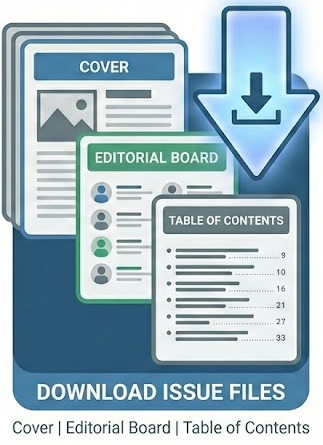Project Based Learning Model to Improve Communication Skills and Science Learning Outcomes
DOI:
https://doi.org/10.30736/seaj.v5i2.813Abstract
21st century learning does not only focus on learning outcomes but also emphasizes the 4C skills. One of the 4C skills that must be mastered by students is communication skills. Communication skills can be trained and developed through the application of a project-based learning model ( PjBL). PjBL is one of the learning models which is the main program of choice in an independent curriculum that can bridge the development of student’s communication skills. Good communication skills affect mastery of the material and student learning outcomes. The purpose of this study was to determine the effect of the project based learning model in improving communication skills and science learning outcomes. This type of research is classroom action research which consists of two cycles. Each cycle includes planning, implementation, observation, and reflection. The results of the first cycle of reflection were analyzed, then in revision to improve learning in cycle II. The research design uses the Kemmis and Mc. Taggart. The results showed that student’s communication skills increased from 60% (enough) in Cycle I to 75% (good) in Cycle II. In addition, the mastery of student learning outcomes also increased from Cycle I by 60% to 84% in Cycle II. Thus, it can be concluded that communication skills and science learning outcomes for class VII-E students of SMPN 6 Madiun can be improved by applying a project-based learning model.Downloads
References
Ardianti, S. D., Pratiwi, I. A., & Kanzunnudin, M. (2017). IMPLEMENTASI PROJECT BASED LEARNING (PjBL) BERPENDEKATAN SCIENCE EDUTAINMENT TERHADAP KREATIVITAS PESERTA DIDIK. Refleksi Edukatika : Jurnal Ilmiah Kependidikan, 7(2), 145–150. https://doi.org/10.24176/re.v7i2.1225
Cangara. (2011). Pengantar Ilmu Komunikasi. Jakarta : PT Raja Grafindo.
Elisabet, E., Relmasira, S. C., & Hardini, A. T. A. (2019). Meningkatkan Motivasi dan Hasil Belajar IPA dengan Menggunakan Model Pembelajaran Project Based Learning (PjBL). Journal of Education Action Research, 3(3), 285. https://doi.org/10.23887/jear.v3i3.19451
Imamah, Z., & Muqowim, M. (2020). Pengembangan kreativitas dan berpikir kritis pada anak usia dini melalui metode pembelajaran berbasis STEAM and loose part. Yinyang: Jurnal Studi Islam Gender Dan Anak, 15(2), 263–278. https://doi.org/10.24090/yinyang.v15i2.3917
Amalia, Yushinta et. all. (2021). The Effectiveness of using the Project-Based Learning Module Viewed from The SEPs Skills of Students. Science Education and Application Journal (SEAJ) Pendidikan IPA Universitas Islam Lamongan, 3(1), 52–59. http://jurnalpendidikan.unisla.ac.id/index.php/
Kemendikbudristek. (2022). Kurikulum untuk Pemulihan Pembelajaran (Satu). Pusat Kurikulum Dan Pembelajaran Badan Standar, Kurikulum, Dan Asesmen Pendidikan Kementerian Pendidikan, Kebudayaan, Riset, Dan Teknologi.
Kemmis and Mc Taggart. (1990). The Action Research Planner. Victoria: Deakin University Press.
Lestari, I., & Ilhami, A. (2022). Penerapan Model Project Based Learning Untuk Meningkatkan Keterampilan Berpikir Kreatif Siswa Smp: Systematic Review. LENSA (Lentera Sains): Jurnal Pendidikan IPA, 12(2), 135–144. https://doi.org/10.24929/lensa.v12i2.238
Oktavianingsih, E. (2017). Meningkatkan Keterampilan Berkomunikasi Verbal Anak melalui Pembelajaran Berbasis Proyek. KMP Education Research Conference, Yogyakarta.
Ravitz. (2021). Pervasive Management of Project-Based Learning: Teachers as Guides and Facilitators. Handbook of Classroom Management.
Redhana, I. W. (2019). Mengembangkan Keterampilan Abad Ke-21 Dalam Pembelajaran Kimia. Jurnal Inovasi Pendidikan Kimia, 13(1).
Sartini, & Mulyono, R. (2022). Analisis Implementasi Kurikulum Merdeka Belajar Untuk Mempersiapkan Pembelajaran Abad 21. Didaktik : Jurnal Ilmiah PGSD STKIP Subang, 8(2), 1348–1363. https://doi.org/10.36989/didaktik.v8i2.392
Septaria, K., & Fatharani, A. (2022). Manga versus webtoon: Alternative science learning module based on Dr Stone. Jurnal Inovasi Pendidikan IPA, 8(1), 11-22.
Septaria, K., Fatharani, A., & Yasa, A. D. (2022). COVID-19 is a Conspiracy Disease? Diagnostic Mental Models and Students' Cognitive Abilities. Jurnal Penelitian Dan Pengkajian Ilmu Pendidikan: E-Saintika, 6(1), 18-32.
Septaria, K. (2023). MEDIA ULAR TANGGA DAN LITERASI: ANALISIS PENGARUH PADA MATERI MITIGASI BENCANA BANJIR PADA SISWA SEKOLAH MENENGAH PERTAMA. SPEKTRA: Jurnal Kajian Pendidikan Sains, 9(1), 1-13.
Septaria, K., & Dewanti, B. A. (2022). Analisis kepuasan mahasiswa Pendidikan IPA menggunakan learning management system Brightspace pada matakuliah Mitigasi Bencana. JIPVA (Jurnal Pendidikan IPA Veteran), 6(1), 19-33.
Setiawan, A., Suhendar, & Ramadhan, B. (2022). Penggunaan Model Pembelajaran Project Based Learning Untuk Meningkatkan Kemampuan Komunikasi Interpersonal Siswa Kelas VIII Mata Pelajaran IPA di MTs Raudhatul Ikhwan Tahun Pelajaran 2021/2022 Use of Project Based Learning Model to Improve Interpersonal C. Report of Biological Education, 3(1), 33–44.
Wardhani dan Wihardit. (2017). Penelitian Tindakan Kelas. Universitas Terbuka
Wati, M. Y., Maulidia, I. A., Irnawati, & Supeno. (2019). Keterampilan Komunikasi Siswa Kelas Vii Smpn 2 Jember Dalam Pembelajaran Ipa Dengan Model Problem Based Learning Pada Materi Kalor Dan Perubahannya 1). Jurnal Pembelajaran Fisika, 8(4), 275–280.
Downloads
Additional Files
Published
How to Cite
Issue
Section
License
Authors who publish with this journal agree to the following terms:
- Authors retain copyright and grant the journal right of first publication with the work simultaneously licensed under a Creative Commons Attribution-ShareAlike 4.0 International License that allows others to share the work with an acknowledgment of the work's authorship and initial publication in this journal.
- Authors are able to enter into separate, additional contractual arrangements for the non-exclusive distribution of the journal's published version of the work (e.g., post it to an institutional repository or publish it in a book), with an acknowledgment of its initial publication in this journal.
- Authors are permitted and encouraged to post their work online (e.g., in institutional repositories or on their website) prior to and during the submission process, as it can lead to productive exchanges, as well as earlier and greater citation of published work (See The Effect of Open Access).

This work is licensed under a Creative Commons Attribution-ShareAlike 4.0 International License.









